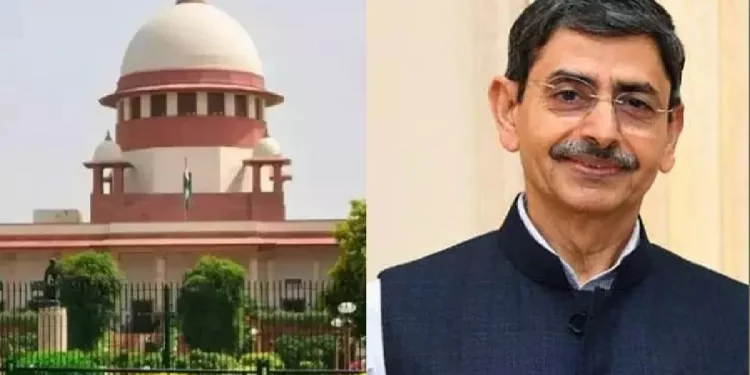The Supreme Court ruling on 8 April declaring as erroneous and illegal the action of Tamil Nadu Governor RN Ravi, a former Intelligence Bureau and Central Bureau of Investigation officer, in reserving 10 Bills for the consideration of the President in November last year after their due reconsideration by the state Assembly is a watershed moment in the ugly tug of war that has become disturbingly regular between Governors and some non-BJP state governments. A Bench of Justices JB Pardiwala and R Mahadevan also laid down the timeline for Governors to decide on Bills presented to them. The Bench said as a consequence any subsequent steps taken by the President, too, do not survive. In an extraordinary move, the court exercising powers under Article 142 of the Constitution also declared the 10 Bills as having received assent, “having regard to the unduly long period of time for which these Bills were kept pending by the Governor before the ultimate declaration of withholding of assent and in view of the scant respect shown by the governor” to the court’s decision in similar matters before. This is a most welcome step to stop the vicious trend of parties ruling at the Centre using the Governor’s post in Opposition-ruled states as a tool for political vendetta. The decision is expected to have a far-reaching impact on the contours of the Governor’s powers, often abused, for settling political scores. This ruling will also impact Governors in other Opposition-ruled states, including Kerala, West Bengal and Punjab.
While Article 163 of the Constitution deals with the powers of the Governor generally, Article 200 specifically deals with the issue of granting assent to Bills. Both provisions are read together to determine the power the Governor holds on this issue. When a Bill passed by the legislature of a state is presented to the Governor, the Governor has four options – grant assent to the Bill, withhold assent to the Bill, return the Bill for reconsideration or reserve the Bill for the consideration of the President.
However, an ugly political game is being played far too often using a Constitutional provision. It stipulates that the Governor “may, as soon as possible,” return Bills other than money Bills, with a message requesting that the House reconsider it in parts or in whole, but once the Legislative House reconsiders the Bill and sends it back to the Governor the second time, the Governor “shall not withhold assent therefrom.” The vagueness of the wording of the proviso stating the Governor must return the Bill “as soon as possible,” without setting a definite time frame, has given ample room for the manipulation of the post of the Governor. The framers of the Constitution were clear in their intent of not giving sweeping powers to the Governor to disregard the elected representatives’ legislative decision. The Governor has the power to advise and suggest the government if he/she finds anything wrong in a Bill within the framework of the laws and the Constitution for smooth functioning of a government through constructive collaboration between the Governor and the government.
But, an indefinite timeline in deciding on Bills may, in effect, lead to governance paralysis. The Governor can certainly use his/her discretion which, however, cannot be used arbitrarily or based on personal preference, but only in Constitutional terms with cogent reasons.
Apart from Tamil Nadu, Kerala, Telangana and later Punjab too had sought the intervention of the Supreme Court on the issue. Kerala, in its plea, had argued that three Bills were pending with then Governor Arif Mohammad Khan for more than two years and three Bills for more than a year. Telangana has argued that more than 10 key Bills were pending with then Governor Tamilisai Soundararajan and that seven of those Bills were passed by the Assembly and sent for the Governor’s assent in September 2022.
The confrontationist attitude of some Governors in Opposition-ruled states has often created an unseemly debate whether the Governor’s House is used as an extension of the party office of the ruling dispensation at the Centre. The Bench’s observation that it only wanted to make sure that the Governor must act with due deference to the settled conventions of parliamentary democracy, “respecting the will of the people being expressed through the legislature as well as the elected government responsible to the people” is expected to go a long way in ensuring collaboration and not confrontation between a state government and a Governor. Even if there is no collaboration possible between the Governor and the state governments, this judgement may help parties in power in the state legislatures that are not aligned to the one at Delhi to deliver timely development to their people.







































